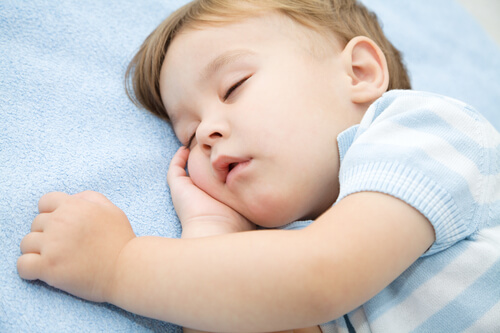 Children are a handful and sometimes, scary. So many things can go wrong with them, and trying to figure out what is like defusing a bomb. What do you do when all of a sudden your kid is making ungodly noises at night and waking up constantly?
Children are a handful and sometimes, scary. So many things can go wrong with them, and trying to figure out what is like defusing a bomb. What do you do when all of a sudden your kid is making ungodly noises at night and waking up constantly?
Well, if you feel like the offspring can’t breathe at night the odds are that they have sleep apnea. Since children can be such messy, mysterious and alarming creatures though, you’re going to need help spotting it.
What is Sleep Apnea?
Before mildly traumatizing your child by looming over their bed at night, you need to be sure you know what sleep apnea really is. During sleep, people experience apneas. These are just regular pauses in breathing. When they happen a lot or last longer than usual, you’ve got “sleep apnea”.
Sleep apnea in children comes in different types. The most common is referred to as obstructive sleep apnea. As the name implies, snoring, breathing poorly and waking often are caused by an obstruction; usually the tonsils or other tissues in the throat relaxing during sleep. The other two kinds are called central and mixed. They both affect infants or young children.
Central sleep apnea in children can be crudely summarized as part of your brain that controls breathing not working how it should from time to time. Mixed apnea is a combination of the two previous ones and it has the lovely bonus of affecting your kid whilethey’re awake!
Now that we know what sleep apnea is, how can we tell our kid has it?
How to Detect Sleep Apnea in Your Kids
A snore does not a sleep apnea make, but it’s a sign. The thing to watch for is breathing afterward – specifically gasping for air or not breathing at all. Waking constantly is another giveaway.
Fatigue isn’t the only thing affected. They’re developing and sleep apnea in children can actually affect mood and concentration. Millions of children all suffer in many areas of growth and development because of sleep apnea.
Sometimes it’s genetic, sometimes it’s weight related and sometimes it’s because of their facial structure but whatever the cause, it’s up to the you to fix it.
Treatment Options For Sleep Apnea
Luckily, there’s ways to cope and make things better. The key is airflow. Some of the more popular treatments are:
- Medication – Oral and nasal sprays with decongestants are a good first step. Additionally sometimes a small device that realigns the jaw’s resting position during sleep is enough.
- CPAP – Continuous Positive Airway Pressure machines apply a strong stream of air during sleep, augmenting natural breathing with a mask.
- Surgeries – There are many surgical options available including: Adenotonsilectomy (removal of tonsils), Uvulopalatopharyngoplasty (removal of uvula and other tissues) and Septoplasty (Realigning a deviated septum)
You can’t just decide that your little one has sleep apnea and order a CPAP machine over the phone though. You’ll want to consult with an expert like an Ear, Nose and Throat Doctor (ENT) to make sure.
Share Tweet Email If you’ve been looking for a permanent treatment for snoring that doesn’t involve surgery or sleeping with a medical device, Elevoplasty® treatment is an option you may wish to consider. What Is Snoring? Snoring is the rattling sound which occurs when a patient breathes in air and the relaxed tissues of the throat vibrate. […]
Share Tweet Email Snoring is one of the most annoying sounds for people to attempt to sleep through. This overshadows the fact that snoring isn’t taken as a sign of potentially serious health issues. From your heart to your stomach, snoring can be the catalyst for problems like thick arteries and irregular heart beats. Danger […]
